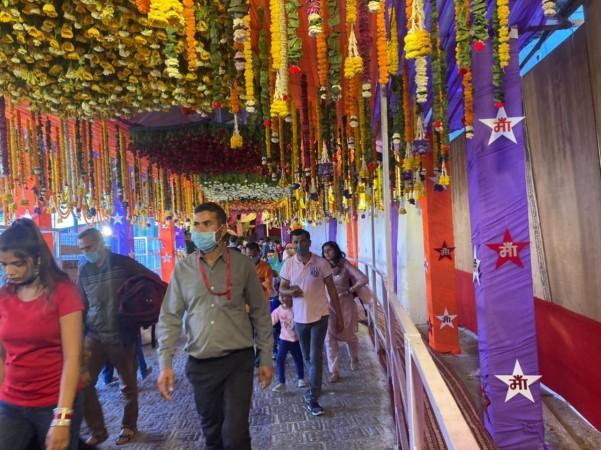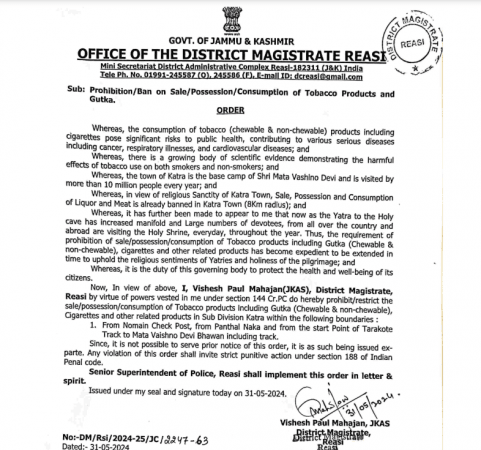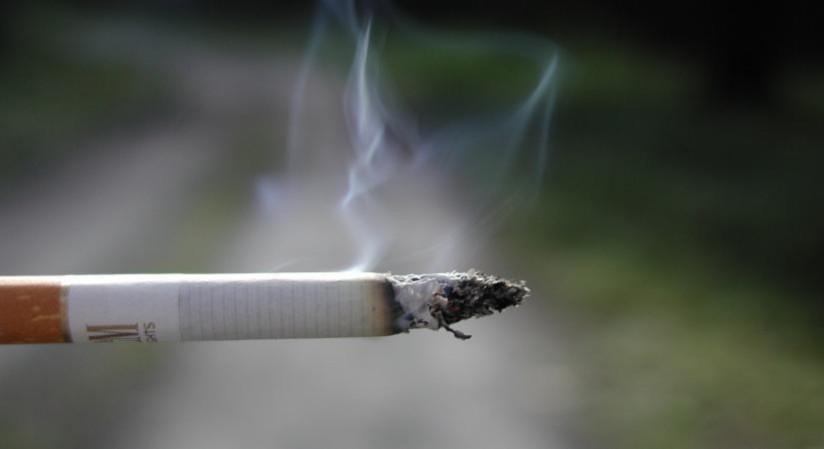
Authorities of the Reasi district of Jammu and Kashmir banned the sale and consumption of all kinds of tobacco products in the holy town of Katra which is the base camp of the most revered cave shrine of Mata Vaishno Devi.
The decision to ban the sale and consumption of all tobacco products was taken during a function held in connection with the "World No Tobacco Day" on Friday.
In a significant move to protect public health and uphold the religious sanctity of Katra, the Deputy Commissioner of Reasi, Vishesh Paul Mahajan, exercising his authority as District Magistrate, has announced a comprehensive ban on the sale, possession, and consumption of tobacco products in the town. Katra, the base camp for the revered Shri Mata Vaishno Devi shrine, hosts over 10 million visitors annually.

"The consumption of tobacco products, both chewable and non-chewable, including cigarettes, poses significant risks to public health. These products contribute to various serious diseases such as cancer, respiratory illnesses, and cardiovascular diseases," stated Mahajan in an order.

Sale of liquor, meat already banned in Katra
Given Katra's religious significance, the sale, possession, and consumption of liquor and meat have long been prohibited within an 8-kilometer radius of the town. With the increasing number of devotees visiting the holy shrine daily, Mahajan emphasized the necessity of extending these prohibitions to include tobacco products.
"As the Yatra to the holy cave has increased manifold, and large numbers of devotees from across the country and abroad visit the shrine year-round, it has become imperative to prohibit the sale, possession, and consumption of tobacco products to maintain the holiness of the pilgrimage and respect the sentiments of the Yatris," he explained.
Invoking Section 144 of the Criminal Procedure Code (Cr.PC), Mahajan issued an order to restrict the sale, possession, and consumption of tobacco products, including gutka, cigarettes, and related items, within Sub Division Katra. This prohibition covers areas from Nomain Check Post, Panthal Naka, and the starting point of the Tarakote Track to Mata Vaishno Devi Bhawan, including the track itself, effective immediately.
"Given the urgency, it was not feasible to provide prior notice for this order, which is being issued ex-parte. Any violation will attract strict punitive action under Section 188 of the Indian Penal Code," Mahajan warned. He also instructed the Senior Superintendent of Police, Reasi, to ensure the order is enforced rigorously.

Consumption of tobacco is a big health concern in J&K
The consumption of tobacco in Jammu and Kashmir has emerged as a significant public health issue, with alarming statistics and mounting evidence highlighting its detrimental impact on both health and the economy.
The Union Territory faces a formidable challenge in combating the widespread use of tobacco products, including cigarettes, bidis, and smokeless tobacco.
Recent studies reveal that Jammu and Kashmir has one of the highest rates of tobacco consumption in India.
According to the Global Adult Tobacco Survey (GATS) India Report, nearly 25% of the adult population in the region uses some form of tobacco.
While this prevalence is particularly high among men, women and younger demographics are also increasingly at risk.
Tobacco use contributes to a range of serious health issues, including lung, mouth, and throat cancers, respiratory diseases, and cardiovascular conditions.
These health problems place a significant burden on the healthcare system, resulting in increased medical costs and productivity losses.
The high rate of tobacco consumption in Jammu and Kashmir can be attributed to a combination of cultural acceptance, lack of awareness, and socioeconomic factors.









